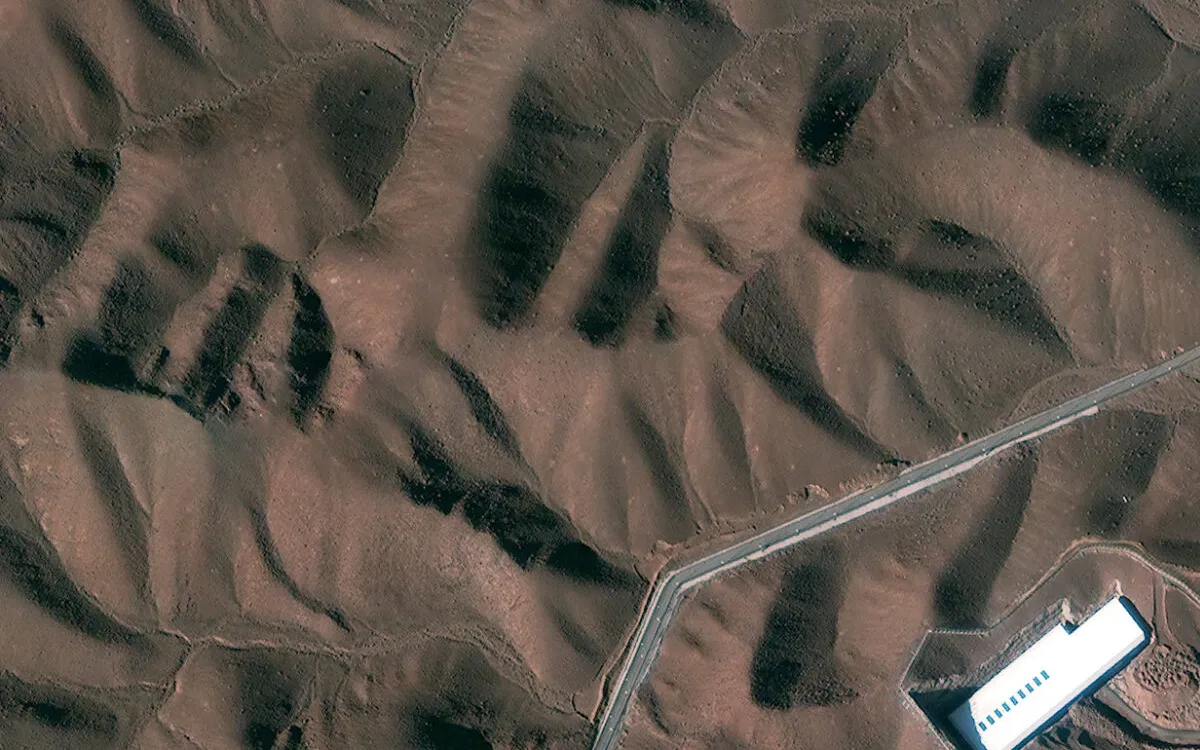
In the aftermath of a 12-day war with Iran, Israel is experiencing a sense of victory, particularly following recent U.S. military strikes on underground nuclear sites in Iran. These attacks have reportedly degraded and reversed Tehran’s nuclear ambitions significantly. However, the nation is also grappling with the loss of 29 civilian lives, along with seven soldiers killed during fighting in Gaza this week, and thousands displaced due to missile strikes. Despite the tragedies, a recent poll indicates that nearly two-thirds of Israelis believe their country emerged victorious from the conflict.
Despite the prevailing sentiment of victory, there are cautionary signals regarding the state of Iran’s nuclear program. A leaked report from the U.S. Defense Intelligence Agency (DIA) suggested — albeit with low confidence — that the bombings only delayed Iran’s nuclear advancements by a few months. President Donald Trump, speaking at the NATO summit in the Netherlands, dismissed the DIA report as “fake news,” opting instead to reference a more favorable Israeli intelligence assessment.
On the other hand, CIA Director John Ratcliffe stated that credible intelligence indicates severe damage to Iran’s nuclear infrastructure due to targeted strikes. He emphasized that this information stems from historically reliable sources, suggesting that several key Iranian nuclear facilities were destroyed and would require years to rebuild.
Compounding the situation, Trump has publicly pressured Israel not to respond aggressively to a ceasefire violation that occurred shortly before a barrage of missiles resulted in Israeli casualties. However, as Israeli officials and security experts assess the geopolitical landscape, they recognize the military success achieved during the conflict. IDF Chief of Staff Lt.-Gen. Eyal Zamir commented that assessments from senior IDF Intelligence officers indicate that the damage inflicted on Iran’s nuclear program is "systemic, severe, broad, and deep," pushing back their capabilities by years.
In a joint statement from Israel’s government and the White House, the Israeli Atomic Energy Commission declared that the devastating U.S. strike on the Fordow facility destroyed critical infrastructure and rendered the enrichment site inoperable. They believe that these actions have significantly delayed Iran's ability to develop nuclear weapons.
The Trump administration and Israeli officials have vested interests in portraying the mission in Iran as a success, leading to skepticism regarding intelligence leaks that contradict this narrative. Experts consulted by Jewish Insider largely support the White House’s dismissal of the DIA report as "flat-out wrong." However, they caution that the full extent of the damage remains uncertain.
David Albright, president of the Institute for Science and International Security, elaborated on the destruction, stating that the attacks have effectively dismantled Iran’s centrifuge enrichment program. He emphasized that it would take a long time for Iran to approach its previous capabilities, although some components remain intact that could be utilized in future weapons production.
Albright provided detailed reports on the sites targeted, indicating severe damage to centrifuges at the Natanz site, substantial destruction at the Fordow facility, and damage to facilities at the Isfahan Nuclear Complex, which are crucial for uranium processing. Mark Dubowitz, CEO of the Foundation for Defense of Democracies, mentioned that the DIA report was a “low-confidence” assessment based solely on satellite imagery, which does not provide a complete picture of the underground damage.
Iran expert Danny Citrinowicz indicated that visual evidence suggests more extensive damage than reported by the DIA, though he too was skeptical of Trump’s claims of complete obliteration. He suggested that to accurately assess the situation, the International Atomic Energy Agency (IAEA) would need to conduct an on-site evaluation.
Experts have varying opinions on how long it might take Iran to repair its nuclear program. Gerald Steinberg, a nuclear arms control expert, warned that predictions regarding the timeframe for repairs are speculative. He noted that the centrifuges' sensitivity to shockwaves from bombings makes it unlikely that many survived the attacks.
Furthermore, Yossi Kuperwasser, head of the Jerusalem Institute for Strategy and Security, pointed out that while Iran might rebuild parts of its nuclear program, they lack the capability to reconstruct certain facilities like the Isfahan conversion plant, which was acquired from China. Given Iran's history of non-compliance with international agreements, it's doubtful that China would assist in building new facilities after accusations of Iran’s nuclear weapon program violations.
Looking ahead, Kuperwasser emphasized the need for Israel to remain vigilant against potential Iranian advancements in missile technology and nuclear capabilities. He proposed that Israel should advocate for an agreement that prevents Iran from enriching uranium or maintaining highly enriched uranium stockpiles, coupled with rigorous oversight by American inspectors.
Former National Security Advisor Robert O’Brien warned that the U.S. must not allow Iran to revive its ballistic missile program, as such advancements would pose a significant threat to both Europe and the United States. He noted that Iran's aggressive posture has historically been a destabilizing factor in the region, and the development of nuclear weapons would have serious implications for neighboring countries.
Kuperwasser concluded that while the physical damage to Iran's nuclear sites is significant, the real impact lies in changing the perception of U.S. and Israeli readiness to act decisively against threats from Iran. He noted that the current administration under Trump could be a crucial asset for Israel, though future stability remains uncertain.
As discussions of a ceasefire continue, O’Brien expressed cautious optimism, hoping that a pause in hostilities could lead to a reduction in violence against both Israel and the U.S. However, he acknowledged the persistent threat posed by Iran's alliances with militant groups and their reluctance to adhere to ceasefire agreements.